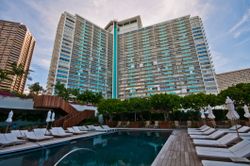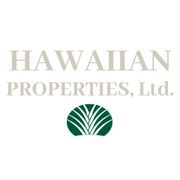Tips to Maximize Board Member Roles and the Quality of your Association

The association management industry continues to evolve in terms of governance and maintaining transparency and clear communication to owners who live in an Association community. In an effort to keep up with changes in legislation and preserve board member integrity, start with knowing what your role as a board member involves.
If you are an officer on the board, your role may require more involvement. There are a number of seminars available to board members that offer advice and recommendations, with a common theme. This common theme is to serve in the best interest of the entire ownership. How do you do just that? Keep it simple by doing the following:
Get to know your team members including your fellow board members and site staff.
I sit on a board of directors, and over time, I’ve come to know my fellow board members in terms of their family life, employment history, and Association-related matters that are important to them. For example, my current board President is a retired Lieutenant from the Honolulu Police Department. He brings years of knowledge gained from his role as an administrator, and provides the board with information specific to City ordinance regarding common house rule violations such as noise or unleashed pets. Another board member is a retired military commander and was part of the leadership team that oversaw millions of dollars in federal funds. He serves as our Treasurer, and has an eagle eye for billing and accounting for accurate financial information. The board Secretary is a former private school teacher, and provides her expertise in editing and grammatical functions, which was instrumental when we updated our House Rules. Take some time and get to know your board. See what they want to offer in terms of experience, but more importantly, their genuine desire to serve their community.
Employee retention is an obstacle many employers face. If you have site staff such as a Resident Manager, maintenance worker, or landscaper, find out what motivates them to come to work every day. While a competitive salary is key in keeping employees happy, paid leave, medical, dental, and family benefits may weigh in heavier than only an hourly wage or annual salary. Professional relationships with residents, including board members, is also important to your association staff. If they feel supported and appreciated in the work they put out for your association, they are more likely to remain on the job and provide quality work. Prevent micromanaging and maintain clear lines of communication and authority. Your site staff operates based on the job description and direction of the Board, not individual owners or guests. Ideally, staff members should take direction from the managing agent, who received the direction and decision from the Board as a whole.
Read your governing documents.
This task has been associated with that of taking a sleeping pill, but if you read and come to understand your governing documents, it can offer insight to the board’s authority and responsibilities. Are you having a difficult time filling vacant board seats? Check your governing documents to see if you can reduce the number of board seats, and follow the appropriate protocol (also outlined in your governing documents) to make it official. This type of change can directly impact the board’s ability to make decisions at a board meeting, since a quorum is required to hold a board meeting.
I mentioned earlier the evolving world of governance and communication. Make governing documents, and any updates to the documents, available at your site office or via the Association’s website. This provides owners with an additional outlet to be informed. The information provided in your governing documents lays out something as simple as how frequent the board is required to meet each year, to what the insurance requirements are for the Association’s Master Policy. Comprehension of this information may not take place in your first reading. This leads me to the next tip
Maintain your status as a “Volunteer” and seek out the professionals to assist.
Sometimes a reminder is in order that you are a volunteer board member. You do not receive a paycheck for your service (that would be illegal). Your time is precious and should be spent enjoying life, family, friends, or anything outside of Association business. If at any time, you are uncertain or want to seek out the opinion of a professional, then do it (with the consensus of the board majority). It is common for an Association to have any number of professionals specifically assigned to the operation of your Association. This starts with your Property Manager (PM). The PM assigned to your Association is your starting point for guidance and receiving information.
As a fiduciary, your board member role is to maintain fiscal responsibility specific to the Association’s funds and how these funds are managed. Sometimes a third party, contracted to the Association, and not affiliated with any management firm, is the best option. This person is your auditor. I manage an Association whose board requires each annual meeting to include the auditor’s attendance. The auditor provides owners with transparent financial information (even though this information is available to owners at any given time of year), and serves as an added layer of support of the board’s financial decisions (i.e., increasing maintenance fees).
These tips are mere guidelines to assist you in your role as a board member. There is no cookie-cutter style to being an effective board member. I truly believe it begins with intent, and where your heart is in every decision you are a part of making. Lean on one another as board members, and empower each other by using skillsets that contribute to the end goal. You will have varying opinions, which is great. Just remember, a united front is essential in carrying out board decisions. Seek out the professionals, use the tools provided, and your role on the board will enhance the quality of your association, which equates to higher property values and hopefully, happy residents.
To help your condo reach its full potential, turn to the team at Hawaiian Properties. Established in 1929, this property management company assists homeowner associations across Honolulu, Oahu, and Kona. With experience managing over 30,000 units, they’ll help you maintain your pool and every other aspect of your condo. Learn more about the company online, and call (808) 539-9777 to schedule a consultation.
About the Business
Have a question? Ask the experts!
Send your question


